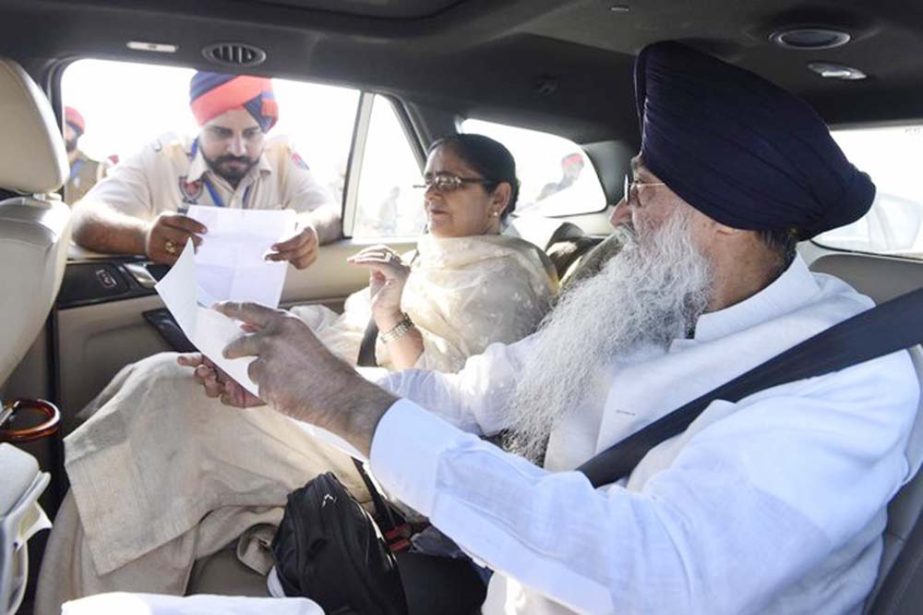
AFP, Dera Baba Nanak :
The first of hundreds of Indian Sikh pilgrims began a historic pilgrimage to Pakistan on Saturday, crossing through a white gate to reach one of their religion’s holiest sites under a landmark deal between the two countries.
Among the first group of pilgrims crossing the border between India and Pakistan at Kartarpur was former Indian Prime Minister Manmohan Singh, who told Pakistani state media that the opening of a secure visa-free corridor between the two countries as a “big moment”.
Indian Prime Minister Narendra Modi thanked his Pakistani counterpart Imran Khan for his “cooperation” on a visa-free corridor allowing Indian Sikhs to visit one of their religion’s holiest sites across the border in Pakistan.
“I would like to thank the Prime Minister of Pakistan, Imran Khan, for respecting the sentiments of India. I thank him for his cooperation,” Modi said in televised comments from the inauguration of the corridor on the Indian side of the border, in a rare message of gratitude between the nuclear arch-rivals.
Hundreds of Indian Sikhs to make historic pilgrimage to Pakistan
Hundreds of Indian Sikhs prepared to make a historic pilgrimage to Pakistan on Saturday, crossing to one of their religion’s holiest sites under a landmark deal between the two countries separated by the 1947 partition of the subcontinent.
The shrine to Sikhism’s founder Guru Nanak lies in Kartarpur, a small town just four kilometres (2.5 miles) over the Pakistan side of the border where he is believed to have died.
In a rare example of cooperation between the arch-rivals, a secure visa-free land corridor has been created to allow pilgrims to travel straight to the temple from the Indian side.
For up to 30 million Sikhs around the world, the white-domed building is one of their holiest sites, which for Indian Sikhs has remained tantalisingly close but out-of-reach for decades.
When Pakistan was carved out of colonial India at the end of British colonial rule in 1947, Kartarpur ended up on the western side of the border, while most of the region’s Sikhs remained on the other side.
Since then, the perennial state of enmity between India and Pakistan, who have fought three wars and countless border skirmishes since independence, has been a constant barrier to those wanting to visit the temple.

